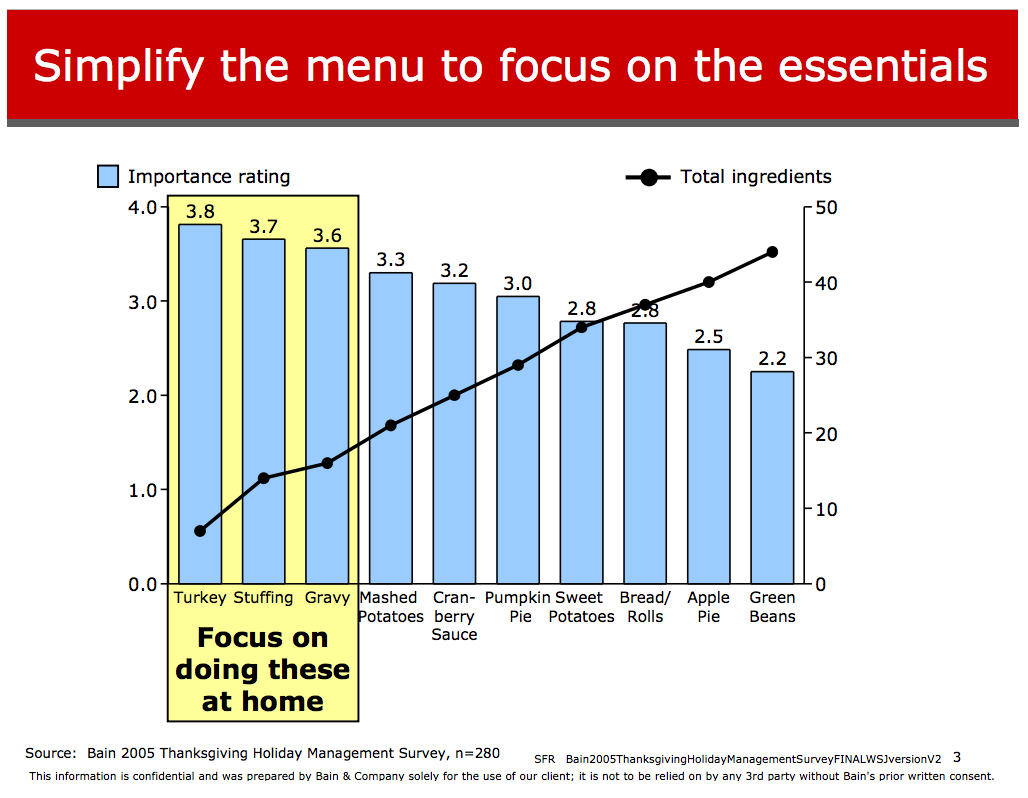Weird and unusual case interviews
An insider's guide to the curveball case interviews from firms like BCG and Bain
|
|
|
Introduction | Examples | How to approach
Imagine spending months preparing for case interviews and then, BAM!, you get a weird, unusual, curveball case interview question out of left field. It's not as rare as you might think.
In 2005, a candidate applying to Bain was asked "How would you plan the perfect thanksgiving dinner?" during her final round interviewer with a Partner.

While most case interviews fall into one of a few loose frameworks or buckets - like market sizing, profitability, market entry, and mergers and acquisitions (M&A) - there are definitely exceptions. Consulting firms are testing a lot of different things in a case interview, one of them being a candidate's ability to stay positive and structured in their approach to even the weirdest, most unstructured, out of left field prompts they throw at you.
These types of cases are rare - but not unheard of. And in this post we'll walk you through some selected examples of what an unusual case or curveball question can look like and how to approach them like a pro.
Examples of "unusual cases" and curveballs (Top)
So what exactly does a weird of unusual case question look like. Let's review a few examples so you have a good sense of what you're getting yourself into.
Science fiction case: launching a teleportation offering
Here's a GREAT example. This question would be sure to raise a candidate's eyebrows!
"Imagine that a secretive tech company has designed and successfully tested a teleportation machine (just like the teleportation machine used in Star Trek - and lots of other sci-fi). This device will let a single person teleport anywhere on Earth within seconds (right now there is no way to teleport back). The company plans to launch two devices - one in NY and one in SF. You have been hired to evaluate the market opportunity for this new device."
Fun Fact: There was a famous BCG partner who asked a version of this question for over a decade and he was rumored to have the highest accuracy on candidates he voted for in terms of their long-term success at the firm.
Non-profit case: Corralling stray dogs
Cases involving non-profits can throw candidates for a loop since the end goal isn't profit or market share, but rather a social outcome. Combine that with a wacky prompt and you can end up with a pretty unusual case interview:
"The city of Dallas has been having a big problem with stray dogs in the city. You have been hired to provide solutions for how to fix the problem while preserving animal welfare."

This is based on a real case from BCG in 2016! Lots of the deliverables are published and free to browse. But, more to the point, interviewers will often bring up examples of their most interesting work in case interviews to challenge the candidate.
Case with a twist: a standard case with an usual introduction
Sometimes the weird part of the case interview isn't the bulk of the case, but a short introductory question before diving into a more traditional case. Here's a good example from a RocketBlocks customer's experience:
"The partner giving the case pointed to her phone and said ‘Why should I get a new phone?' before going into a more traditional market entry case about a cell phone provider."
The case of out of left field: planning a Thanksgiving dinner
In this example, the partner running the interview had been asked to write an article for the Wall Street Journal about how to plan a Thanksgiving dinner and she hadn't sat down to write it yet. Well, her next case interview presented the perfect opportunity to jumpstart her process:
"How would you plan the perfect thanksgiving dinner?"
This is totally out of left-field, and would be sure to rock the boat a bit at the start of an interview.
And speaking of boats, multiple candidates applying to BCG from INSEAD got the following question in 2019:
"How would you price the ocean?"
This is a short question and it touches on a common topic - pricing - but the scope is certainly scary upfront.
Current work: asking about an ongoing case
Sometimes, especially more senior folks, will ask candidates questions or give entire cases based on a current project.
In these situations, there's often insufficient data or no clear answer yet because the case team hasn't gotten there! These can be especially challenging because case interviews are usually packaged to be very solvable given the right process, with ideal data available and a clear set of possible solutions.
Don't reinvent the wheel: apply core case skills (Top)
Unusual cases, by their nature, don't fit into any neat categories. There isn't a straightforward and generalizable framework that you can apply when you encounter one. The key to solving unusual cases, then, is to recall and apply the core skills you've built in your case prep.
💡 Shameless plug: Our consulting interview prep can help build your skills
Match the tone of the question
When you get one of these unusual cases or curveball type questions, it's important to match the tone of the question being asked. If you're asked, for example, the question about whether the partner should get a new phone, you probably shouldn't say "let me take 90 seconds to draw out a framework". It just doesn't meet the level of the question.
Consulting is a client-facing business and consultants have to be adaptable to the differing tones and requirements of clients, which can vary massively depending on the situation or the person. Curveball questions test your ability to "meet the moment" of the task at hand.
Be structured in your approach
Stay calm but remember even an informal question still deserves a structured response.
One of the key things being tested in a case interview is a candidate's ability to solve problems in a structured, understandable way. The worst thing you can do when given an unstructured and strange problem or question is devolve into a wishy-washy or erratic problem solving method.
When given a weird prompt you should take a second to think about the core issues being presented. Clarify the end goal, think through and probe the interviewer for context around the problem, and lay out a clear and actionable problem solving method and/or recommendation.
It can be easy, and even reflexive, to just start analyzing immediately when you're unsure of what to do next. Stay cool, stay structured, and your preparation will kick in.
Adapt existing frameworks
Let's use the teleportation technology case as an example. At first glance, you might have no idea what to do. But on closer analysis, it's really just a market entry case dressed up with some science fiction bells and whistles. So, how would you proceed?
First, a good candidate would evaluate the market. Who are our target customers and what are their characteristics? How many people would be interested in using the product, and how do we estimate that? Are there any competitors (doubt it)? What's our estimate for how the market will grow in the next 5 years? What price, or range or prices, could we charge for this service and why? Are there other cities besides New York and San Francisco that would be good places to launch this kind of service?
Then we'd want to develop our go-to-market strategy. How do we sell it? Do we partner with existing transportation giants to secure financing? Should we make it a subscription or a pay-per-use revenue model? How will we market the product to our target customers? Should we prioritize certain markets over others?
Bottom line is this isn't anything new, it just seems totally new. When you see a weird problem, take a closer look to see if it resembles problems that you are familiar with. In all likelihood, it is.
Leverage your interviewer and accept coaching when given
Your interviewer is not oblivious to the fact that the case or question they're giving is outside of the "normal" spectrum. While they expect you to be able to do most of the heavy lifting, just like in any other case they'll lend a helping hand where they feel necessary or appropriate.
For example, if you're given a non-profit case with an ill-defined target metric, you can certainly ask for context around how a non-profit measures success. Or maybe you're stuck on how to structure a certain problem. Asking questions of the interviewer about your plan of attack is fair game, especially for an unusual case.
Conclusion (Top)
Weird case interview questions are a way consulting firms test a candidate's ability to stay calm, cool, collected, and structured in the face of a totally weird question. Great consultants are expected to do this in a real engagement, whether at the start of a case or when tackling a component problem.
We suggest practicing with these weird questions two build two skills:
- Your ability to solve unusual cases
- Your ability to structure ANY problem thrown at you
By sticking to the fundamentals, you should be able to tackle any question or case thrown at you.
Read this next:
P.S. Are you preparing for consulting interviews?
Real interview drills. Sample answers from ex-McKinsey, BCG and Bain consultants. Plus technique overviews and premium 1-on-1 Expert coaching.



